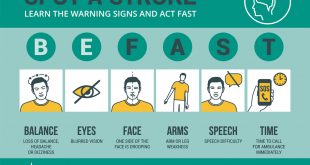By Steven Stein, MD – Board-certified Psychiatrist
Mental health awareness has become increasingly important in today’s society, as individuals and communities strive to break the stigma surrounding mental illness and promote open discussions about mental well-being. By addressing key points such as recognizing signs and symptoms, overcoming stigma, and accessing available services, we can collectively work towards fostering a culture of understanding and support.
1. Open discussion of mental health issues:
The first step towards promoting mental health awareness is initiating open and honest conversations about mental health issues. This involves creating a safe space where individuals feel comfortable sharing their experiences without fear of judgment or discrimination. Whether it’s through support groups, community forums, or social media platforms, encouraging dialogue helps reduce the stigma associated with mental illness and fosters empathy and understanding among peers.
Additionally, education plays a crucial role in raising awareness about various mental health conditions, their causes, and treatment options. By providing accurate information, we can dispel myths and misconceptions surrounding mental illness, empowering individuals to seek help and support when needed.
2. Signs and symptoms:
Recognizing the signs and symptoms of mental health issues is essential for early intervention and treatment. While symptoms may vary depending on the specific disorder, common indicators include persistent feelings of sadness or hopelessness, changes in sleep or appetite, withdrawal from social activities, difficulty concentrating, and mood swings.
It’s important to note that mental health issues can affect anyone regardless of age, gender, or background. By familiarizing ourselves with these warning signs, we can offer support to those in need and encourage them to seek professional help.
3. Overcoming stigma/why people don’t seek help:
Despite growing awareness, stigma remains a significant barrier to seeking help for mental health concerns. Many individuals may feel ashamed or embarrassed about their symptoms, fearing judgment or discrimination from others. Cultural and societal norms can also perpetuate stigma, leading individuals to minimize their struggles or avoid seeking help altogether.
Additionally, misconceptions about mental illness, such as the belief that it is a sign of weakness or moral failing, further contribute to stigma and deter people from seeking treatment. Addressing these misconceptions through education and advocacy can help break down barriers and encourage individuals to prioritize their mental health.
4. The services that can help and what they provide:
Fortunately, there are a variety of services available to support individuals experiencing mental health challenges. These services encompass a range of interventions, from traditional therapy and psychiatry to holistic approaches such as diet, exercise, yoga, meditation, and mindfulness.
Therapy, whether individual, group, or family-based, provides a safe and confidential space for individuals to explore their thoughts, feelings, and behaviors with the guidance of a trained professional. Psychiatric care may involve medication management for conditions such as depression, anxiety, and bipolar disorder, in conjunction with therapy or other forms of support.
In addition to clinical interventions, self-help strategies can also play a valuable role in promoting mental well-being. Engaging in regular physical activity, maintaining a balanced diet, practicing relaxation techniques such as yoga and meditation, and cultivating meaningful connections with others are all effective ways to support mental health.
Furthermore, incorporating spiritual practices into one’s routine can provide comfort and guidance during difficult times. Whether through prayer, meditation, or participation in religious rituals, spirituality can offer a sense of purpose and connection to something greater than oneself.
In conclusion, promoting mental health awareness requires a multifaceted approach that addresses various aspects of mental well-being. By fostering open discussions, recognizing signs and symptoms, overcoming stigma, and accessing available services, we can create a more supportive and compassionate society where individuals feel empowered to prioritize their mental health and seek help when needed. Together, we can break the silence surrounding mental illness and pave the way for greater understanding and acceptance.
Steven Stein, MD
I am a board-certified general psychiatrist who works with adolescents, adults, and geriatric patients. I specialize in the evaluation and treatment of a wide array of psychiatric conditions including depressive and mood disorders, anxiety and panic disorders, ADHD, OCD, PTSD, personality disorders, and bipolar and schizophrenia spectrum illnesses. I also offer intranasal esketamine (Spravato) treatments for treatment-resistant depression. My clinic provides comprehensive care with a patient-centered approach and concentration on psychopharmacological interventions, while implementing supportive and motivational psychotherapies. All my staff are highly qualified, professional and courteous.
I am originally from the Tampa Bay, FL area where I completed my master’s degree at the University of South Florida. I attended medical school at Ross University School of Medicine and completed my psychiatric residency training at Tulane University School of Medicine.
I am based in Sarasota, FL and see patients in person or virtually. I also accept patients virtually throughout the state of Florida. Outside of TTMC, I continue to treat patients in the hospital setting. I believe that stable mental health is a fundamental cornerstone of achieving overall optimal health, vitality, satisfaction, success and purpose.
A Modern Approach
Our staff offers compassionate, non-judgmental, and evidence-based care to all patients. Tidewater Total Mind Care is a safe place for patients to confidentially navigate any of life’s obstacles.
Get started with Tidewater Total Mind Care, today.
Tidewater Total Mind Care
(941) 202-1999
www.tidewatertotalmindcare.com
3333 Clark Rd, Ste 100, Sarasota, FL 34231
 Southwest Florida's Health and Wellness Magazine Health and Wellness Articles
Southwest Florida's Health and Wellness Magazine Health and Wellness Articles

